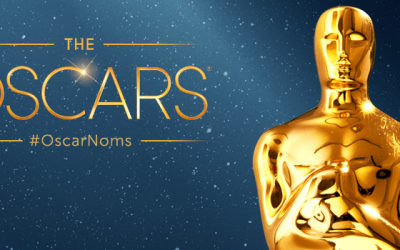Hollywood director Elia Kazan — famous during the 1950s for “On the Waterfront,” “A Streetcar Named Desire” and “East of Eden” — will receive the Lifetime Achievement Award during the Academy Awards (March 21, 1999).
The unanimous decision by the Academy of Motion Picture Arts and Sciences triggered outrage from the Hollywood Left. The Committee Against Silence, comprised of screen writers “blacklisted” during the infamous McCarthy era, are orchestrating a protest in front of the Dorothy Chandler Building on Oscar night, and will run advertisements beforehand asking people to not applaud when the 89-year-old Kazan receives his Oscar.
Why? On April 10, 1952, Kazan gave the House Committee of Un-American Activities (HUAC) the names of eight people he knew to be members of the Communist Party.
For this he was morally condemned by leftists as an unscrupulous scoundrel and an enemy of “civil liberties,” particularly free speech, and was snubbed by Hollywood award givers ever since. In truth, he was a man of integrity and a champion of individual rights — including free speech.
Kazan himself joined the Communist Party in 1934 because he was concerned about the depression and Hitler’s rise, and liked what communists were preaching. But he quit in 1936 because the Communist Party “attempted to control thought … suppress personal opinion … dictate personal conduct. They habitually distorted and disregarded and violated the truth.”
He would have quit sooner but was held back by the following “specious reasoning”: “You may hate the Communists, but you must not attack them or expose them, because if you do you are attacking the right to hold unpopular opinions and you are joining the people who attack civil liberties.”
This “reasoning” is fallacious because the Communist Party was not simply spreading “unpopular opinions” — it had committed murder and violence, and was spying in the interests of a foreign government (Russia) actively pursuing the violent overthrow of the United States.
Ayn Rand, a principled opponent of the Communists, who also testified before the HUAC (1947) as a friendly witness, had explained the fallacy as follows: “The whole conception of civil rights (free speech, free assembly, free political organization) applies to and belongs in the realm of ideas — that is, a realm that precludes the use of physical violence. These rights are based on and pertain to the peaceful activity of spreading or preaching ideas, of dealing with men by intellectual persuasion.”
Free speech, in other words, can never be used to defend the initiation of physical force against others.
The HUAC did not ask whether a person agreed with communism (which is none of the government’s business) but whether he belonged to the Communist Party. Membership in this secret Party involved an agreement to take orders (ultimately from mass-murderer Joseph Stalin) to commit crimes and treason. Belonging to such a criminal organization, regardless of whether one personally committed violence or not, is a legitimate crime — and the U.S. government’s job was to identify and prosecute its membership.
Kazan was morally right to inform on these treasonous criminals — to do otherwise would have been to sanction the destruction of his freedom-loving country by its worst enemies. At the time, Kazan wrote that he named names because he valued “free speech, a free press, the rights of property … and, above all, individual rights” — all of which the Communist Party vehemently opposed — and ever since has remained unapologetic, and rightly so.
The Hollywood Communists were masters of evasion. The Moscow Trials didn’t deter them from communism, nor did the sending of millions to the gulags. And when Stalin signed his pact with Hitler in 1939 against Poland, spawning WW II, the Hollywood Anti-Nazi League instantaneously became the Hollywood League for Democratic Action. Recent access to Soviet archives reveals that the infiltration of the Communists into Hollywood and the U.S. government was far greater than people were led to believe.
It is obscene enough for Kazan’s critics (past and present) to defend staunch enemies of free speech in the name of free speech. But when one considers that the Communists slaughtered tens of millions of innocent people — millions more than even the Nazis did — then any knowledgeable person today who criticizes Kazan for naming members of the Communist Party is morally depraved. This is especially true of those planning to protest Kazan’s award.
Fortunately, a group called the Committee for Naming Facts, spawned by the Ayn Rand Institute, will hold a counter-protest in front of the Dorothy Chandler Building on Oscar night — to honour Elia Kazan and applaud the award. An exciting evening it promises to be!
When Kazan receives his just award, I will applaud with enthusiasm — not primarily for his film achievements but for his principled defense of individual rights — and I’ll feel a bit better about the state of Hollywood culture.



